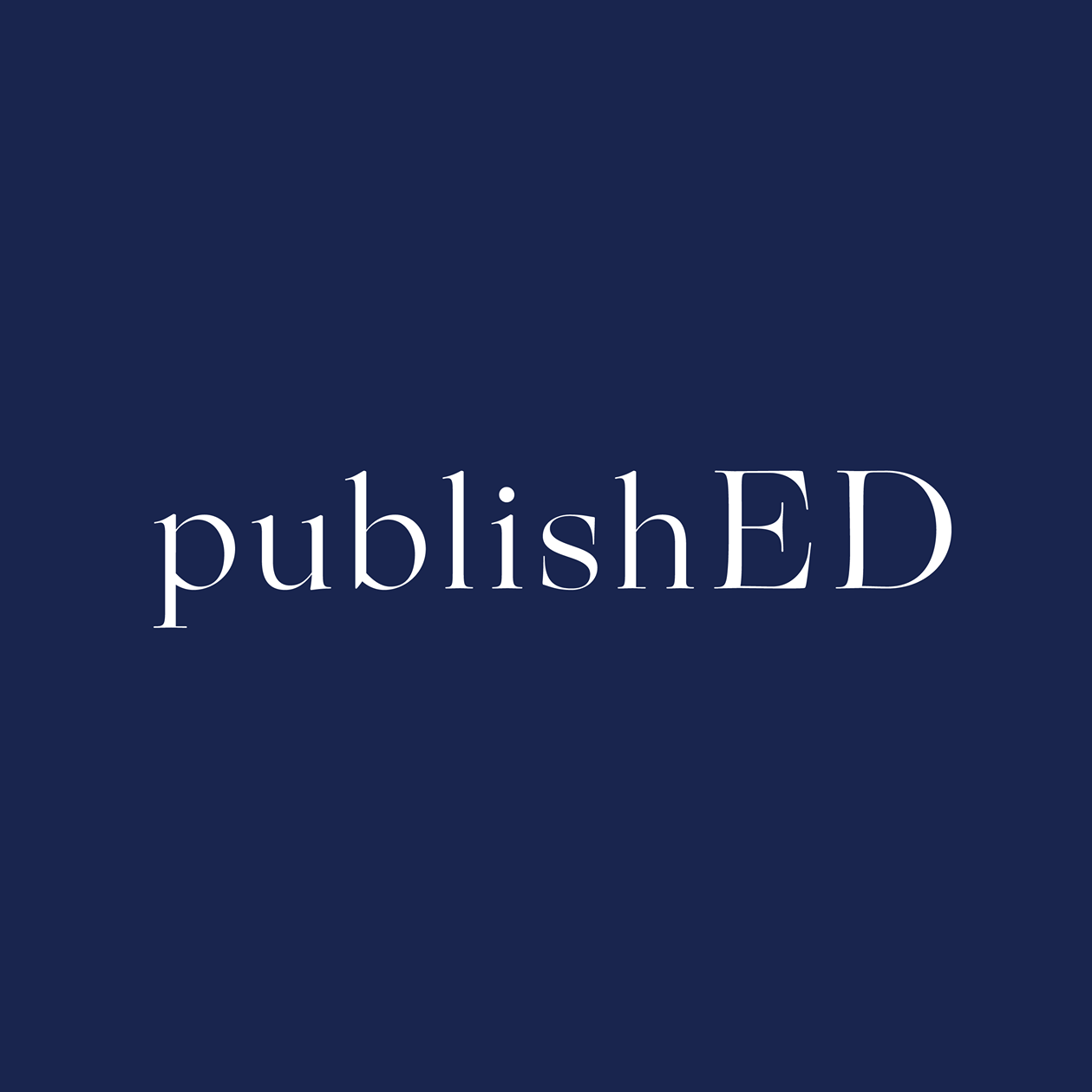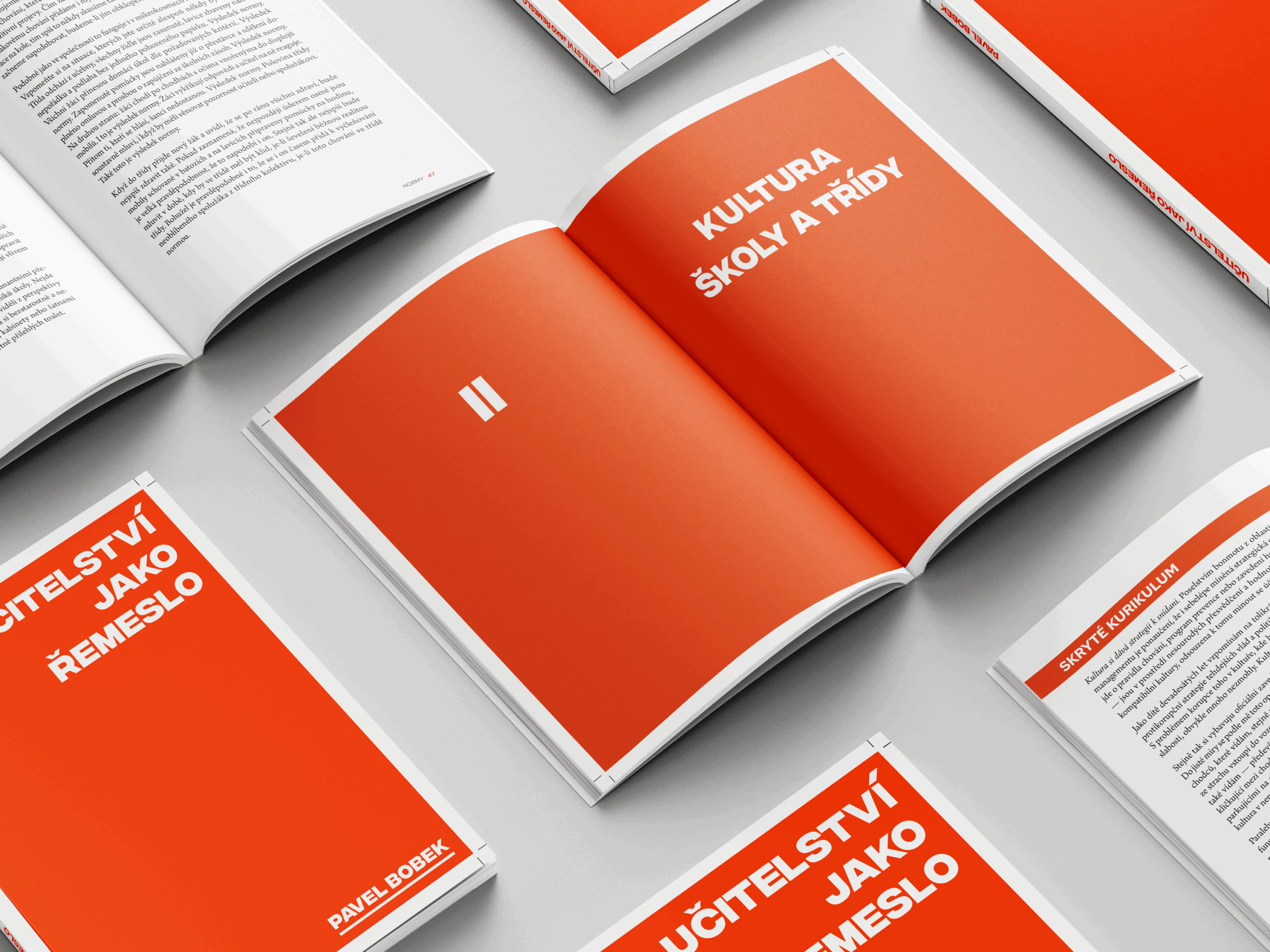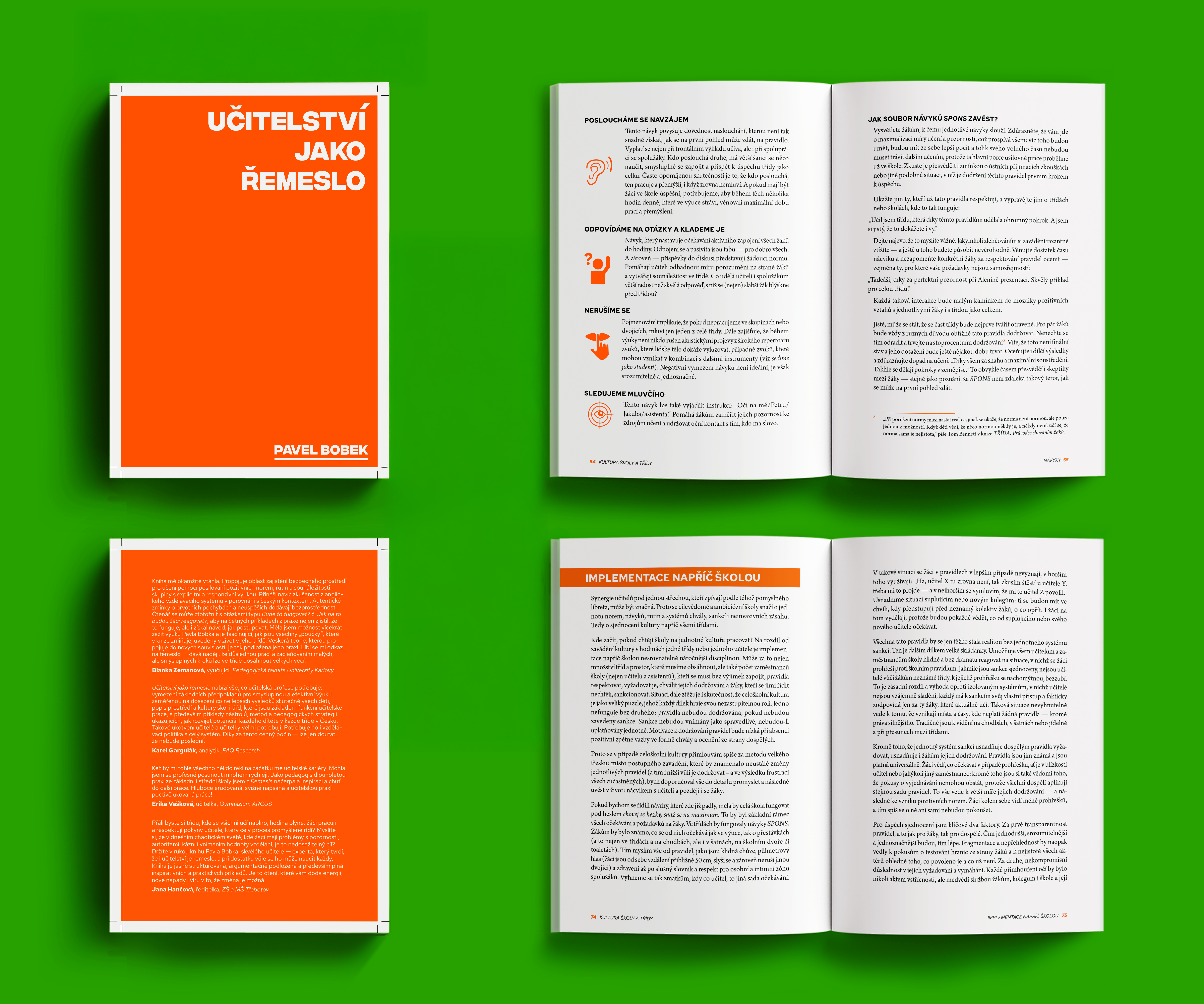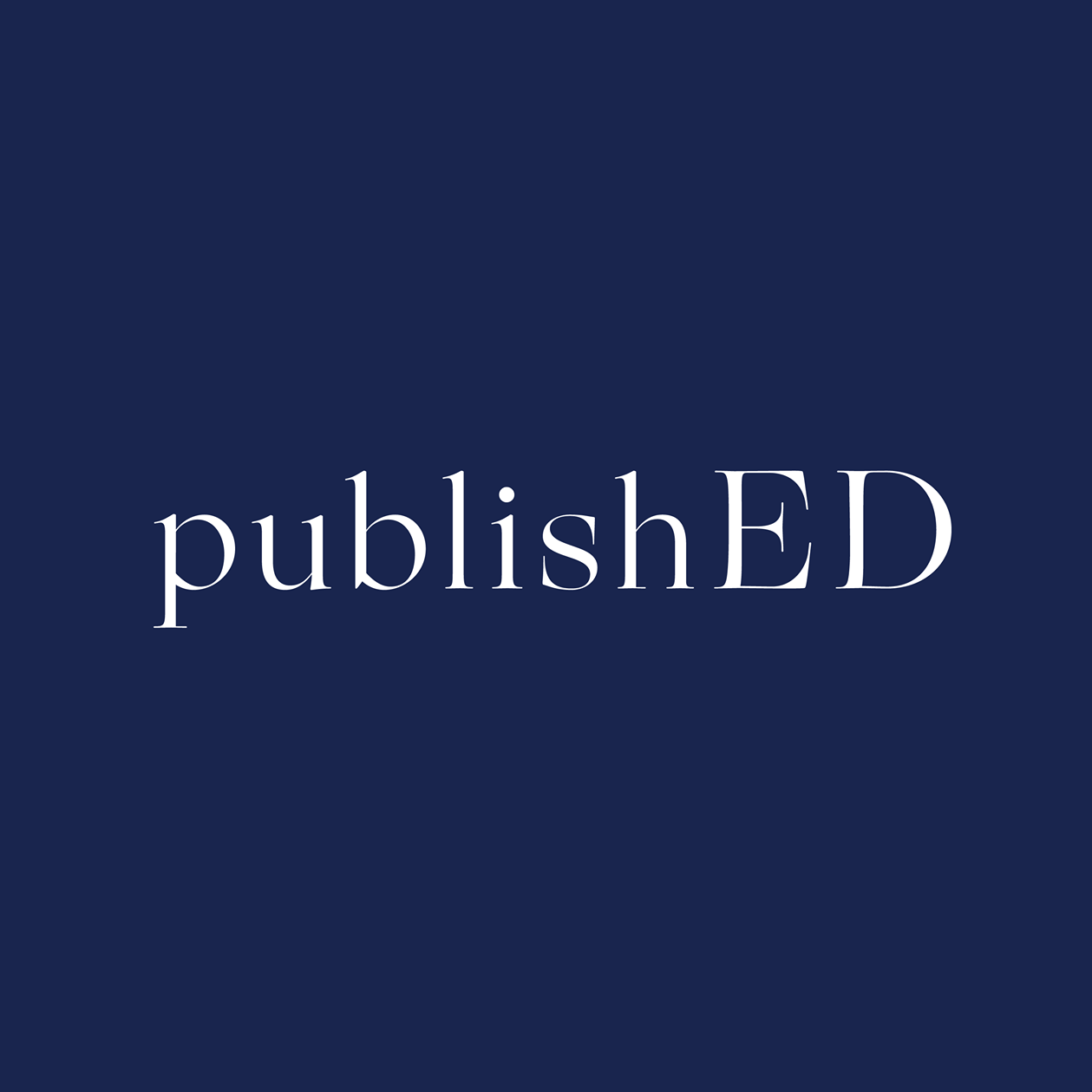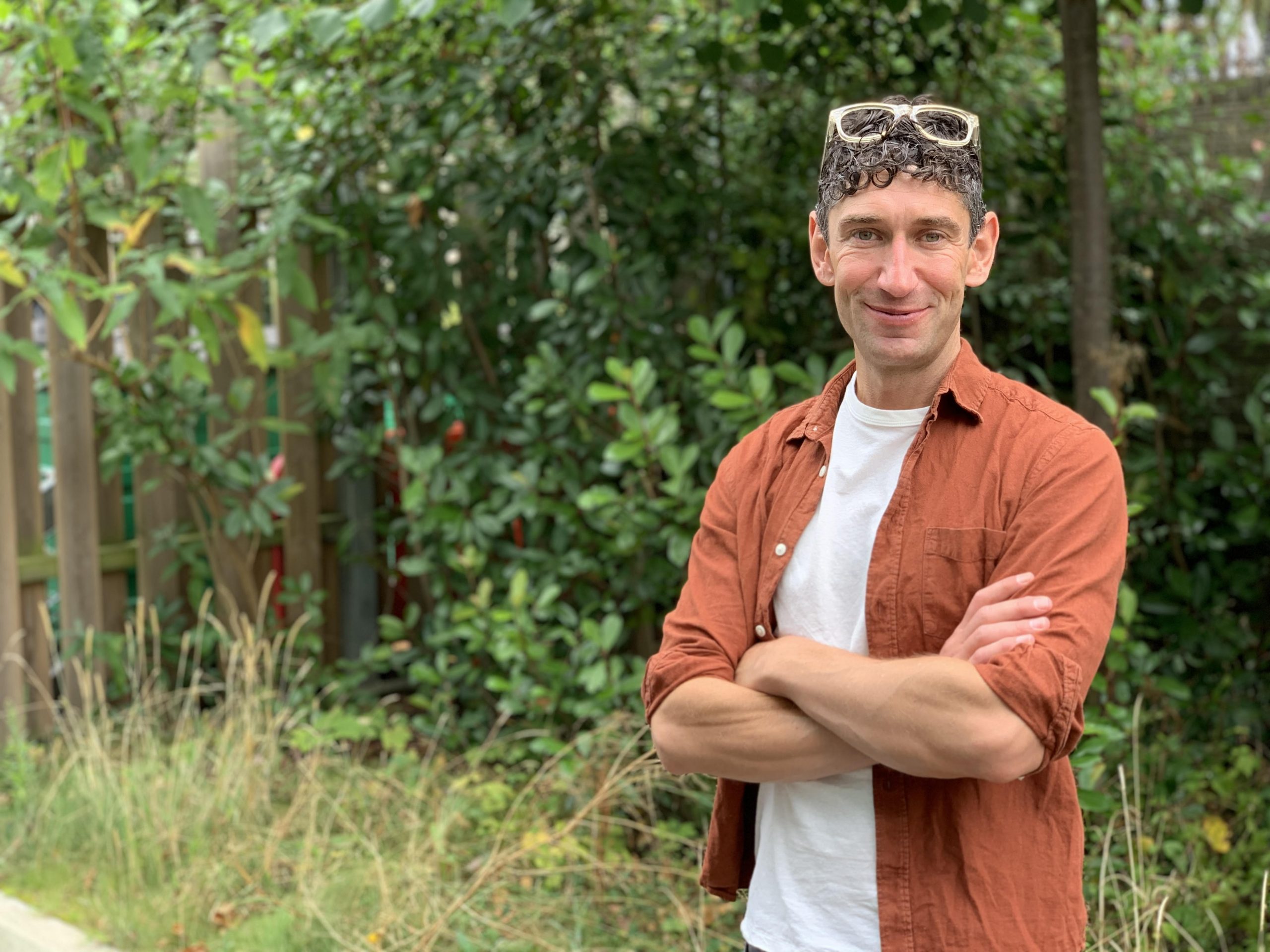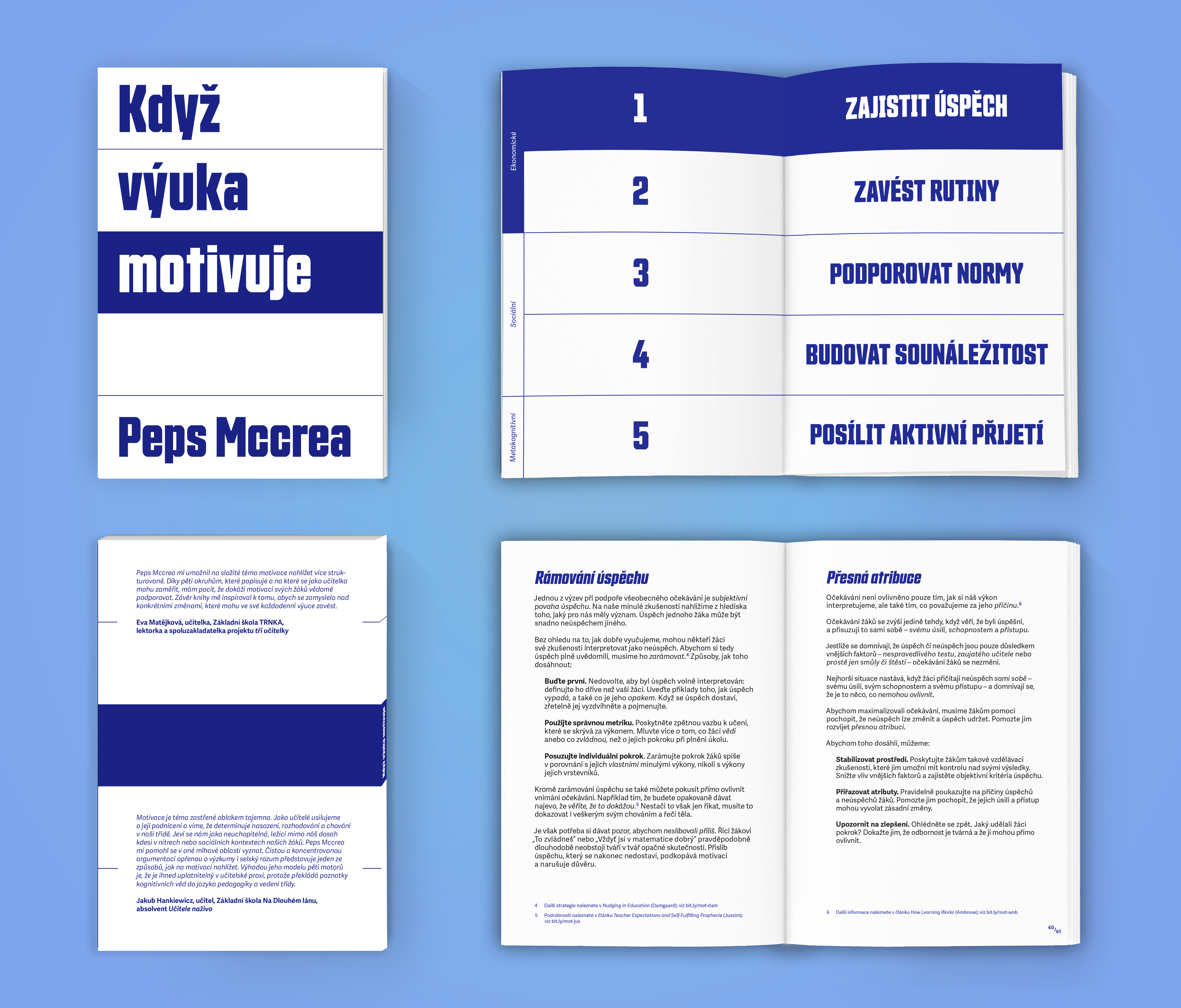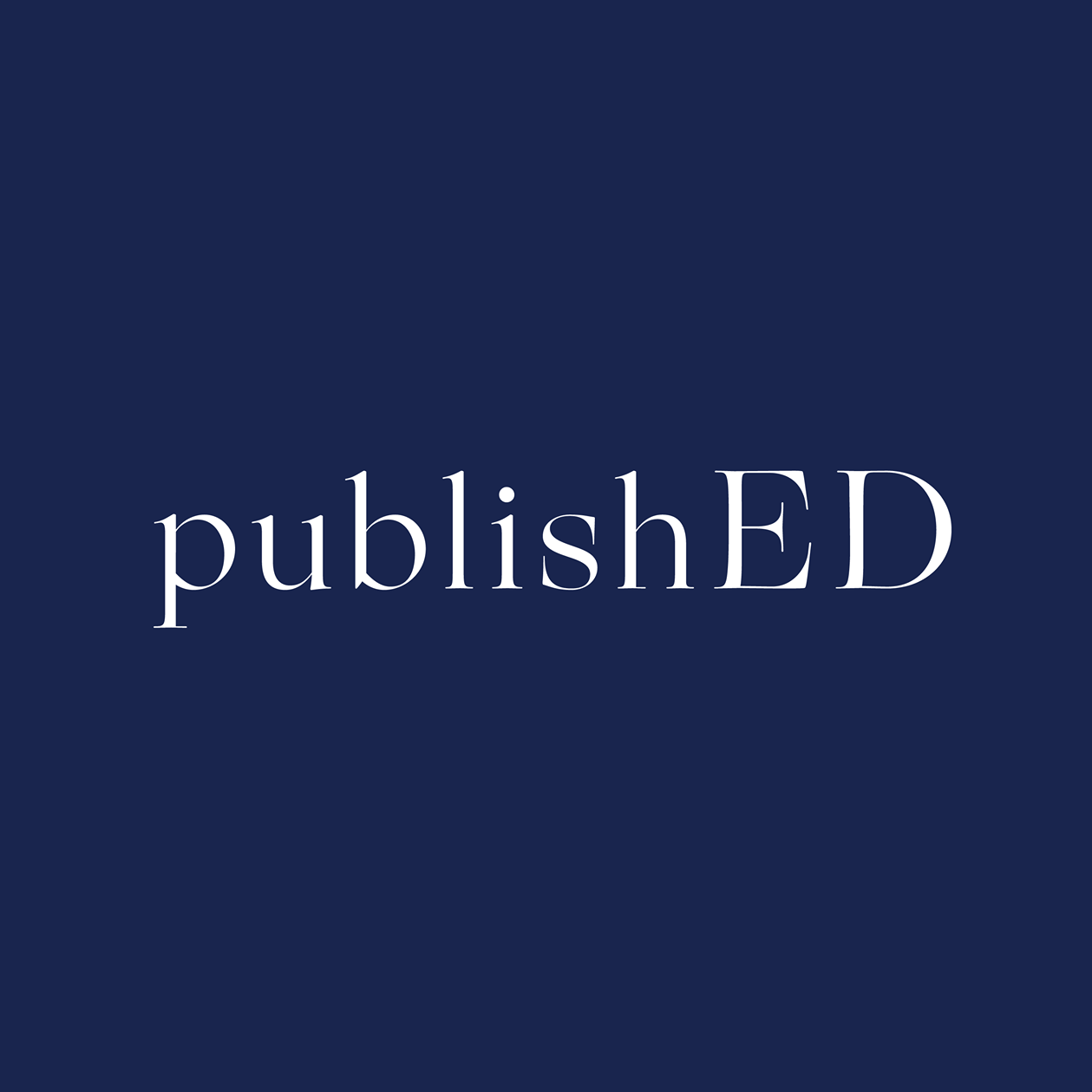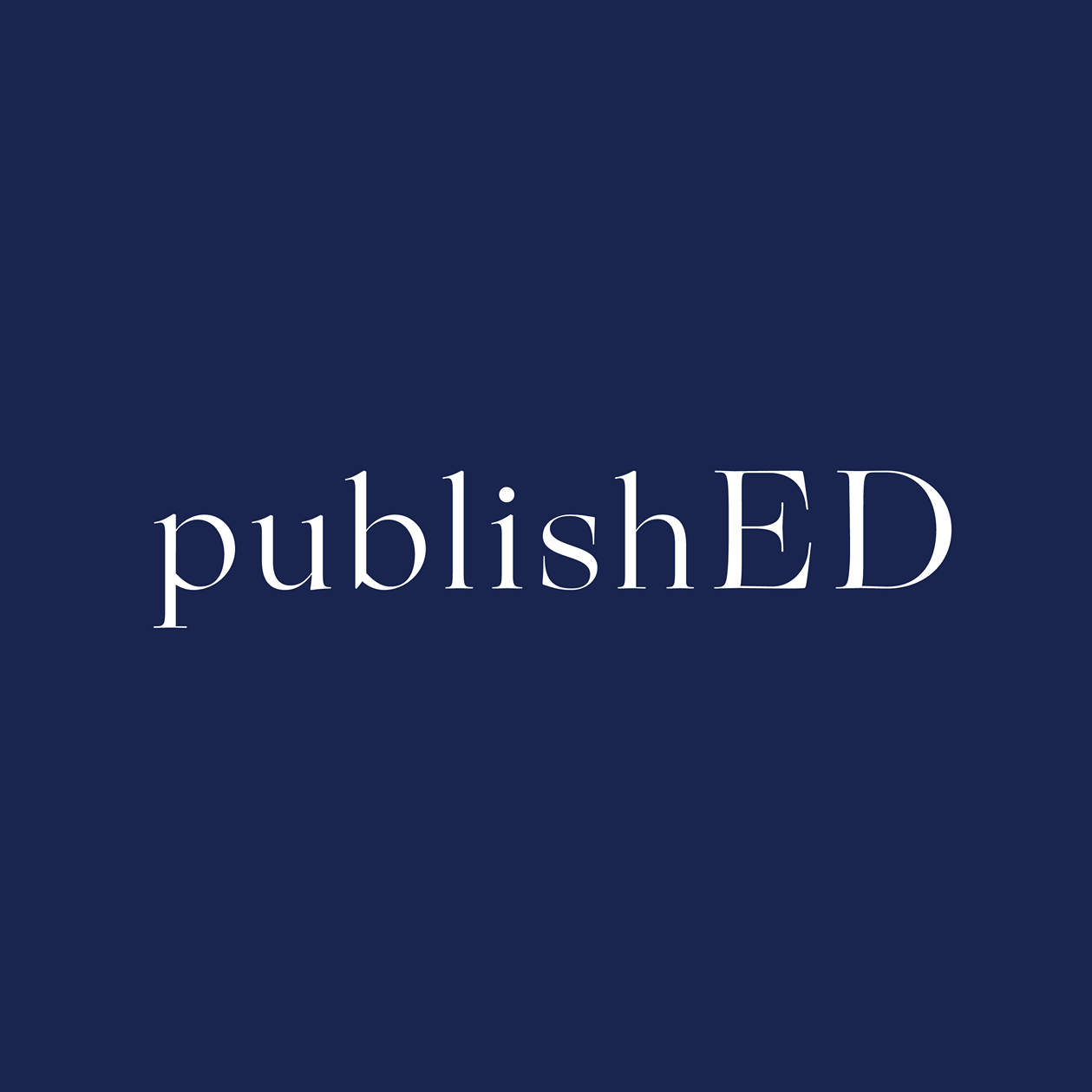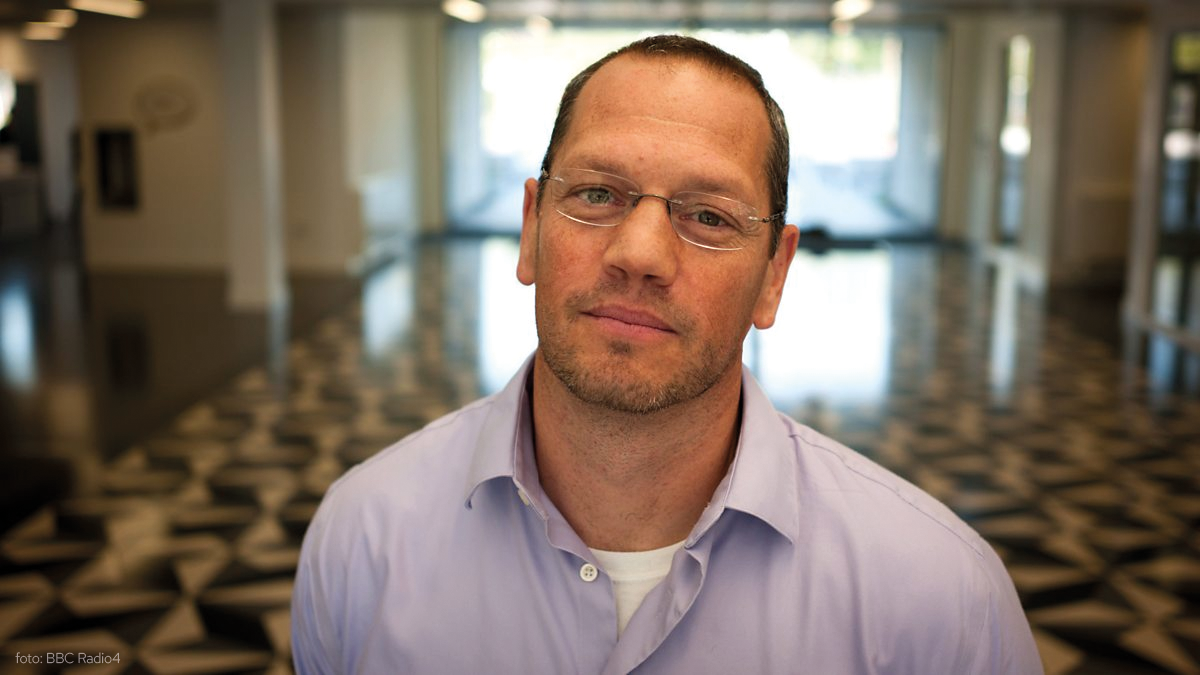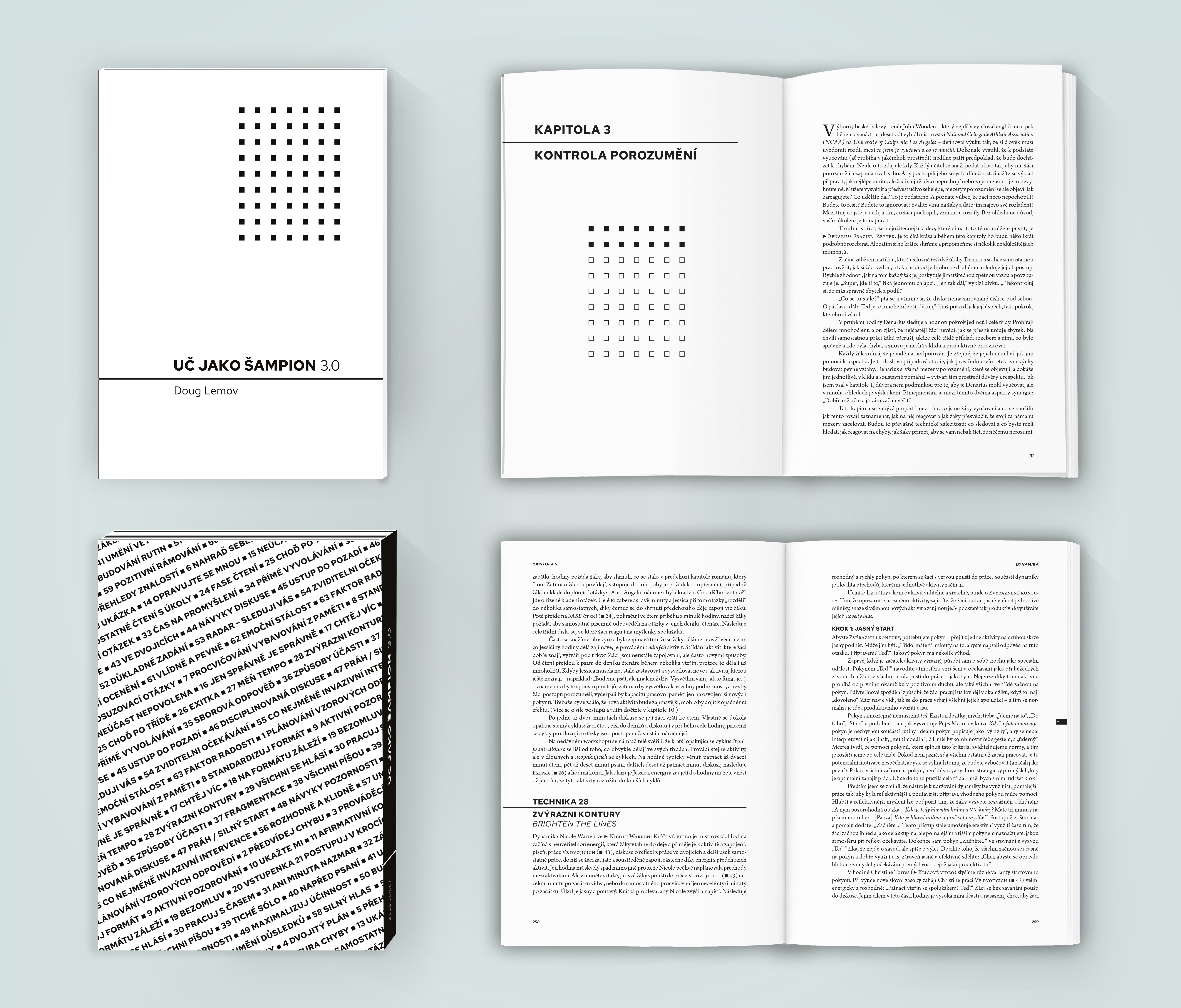Učitelé by měli v hodinách přemýšlet hlavně nad tím, jestli to, co dělají, má oporu ve vědě o učení, a tím pádem i větší dopad na pokrok všech žáků ve třídě. Učitel a vzdělavatel Pavel Bobek si vytkl za jeden z cílů knihy Učitelství jako řemeslo představit tento přístup českým učitelům. Čerpá z toho nejlepšího, co si od světových odborníků na vzdělávání můžeme přečíst — a tyto poznatky přetavuje do reality své třídy na základní škole v Praze. Knihu vydala EDUkační LABoratoř.
Co bylo na začátku při psaní knihy Učitelství jako řemeslo tvým cílem a jak to nakonec dopadlo?
Chtěl jsem především dát do nějakého uceleného rámce ty nejdůležitější poznatky, které jsem si přinesl z Anglie a aplikoval je tady ve škole. Připadalo mi, že jsou využitelné pro každého učitele.

Pavel se učitelem stal v Anglii, kde vystudoval prvostupňové učitelství na UCL Institute of Education v rámci programu Teach First. Souběžně učil na běžné základní škole v kulisách problémového předměstí jižního Londýna. Aktuálně vyučuje na ZŠ Solidarita v Praze a vzdělává studenty učitelství v programu Učitel naživo. V roce 2022 byl jedním z finalistů Global Teacher Prize CZ
A podařilo se ti to?
Vždy by tam toho mohlo být ještě víc — třeba postupy relevantní pro konkrétní předmět, ale chtěl jsem napsat něco univerzálního a v tom smyslu je tam toho dost. Je tam všechno důležité.
Tom Bennett, Daisy Christodoulou, Harry Fletcher-Wood, Pavel Bobek — všichni ve svých knihách popisujete velmi podobnou zkušenost a sice, že vaše začátky při výuce ve třídách byly velmi náročné. Bennett konkrétně píše, že si ho žáci předhazovali jako rituální lidskou oběť…
Ano…
Je to tím, že je příprava učitelů na celém světě nedostatečná, nebo myslíš, že počátečním neúspěchům nelze předejít, a proto si jimi projde každý?
Musíme si tím asi projít každý, ale určitě je otázka, jestli to má trvat půl roku, rok nebo pět let. A jestli pak člověk kvůli obtížím se zvládáním výuky z této profese neodejde. Moje začátky sice byly hrozně těžké, ale nebyla to katastrofa, protože jsem měl fakt skvělou podporu. Mí kolegové mi řekli, jak na to, a to mi ohromně zjednodušilo situaci. Kdybych si na to musel přijít sám, nezlepšil bych se za tak krátkou dobu natolik, abych se už druhý rok cítil ve třídě úplně v pohodě.
K přípravě učitelů konkrétně zmiňuješ, že v Anglii probíhala pravidelná školení dvakrát týdně, byla pro celý pedagogický sbor povinná a že se na nich rozebíraly například konkrétní kapitoly z Uč jako šampion, které jste si měli přečíst. Umíš si něco takového představit v Česku?
Naprosto! Jde jen o to, aby vedení školy mělo odvahu říct: v letošním školním roce se budeme scházet každou středu od tří do čtyř. Nebo třeba na tři čtvrtě hodiny. Nezáleží na tom, jestli to bude jednou či dvakrát týdně. Ale platí tu stejný princip jako v tom, co píšu o normách a rutinách — když se to bude opakovat každý týden, ať se děje co se děje, bude to fungovat. Ale setkání by se nemělo vyhlásit ad hoc na náhodný den jednou za dva měsíce.
A taky to setkání obsahově musí dávat smysl učitelům, aby viděli, že jim to pomáhá ve výuce.
Ano, musí být vidět výsledek. Je to úplně stejné jako při výuce žáků. Malé kroky, zajistit úspěch.
A jak to tedy konkrétně probíhalo?
Vždy jsme měli dané téma, které s námi někdo z vedení probíral a nacvičoval — z počátku roku to třeba byly věci právě kolem rutin a chování. Také jsme rozebírali, čeho si od minule vedení všimlo ve výuce — že něco ještě neděláme dost dobře a mohli bychom zlepšit, ale mluvilo se také o tom, co dobře děláme.
Takže chodili k tobě do výuky?
Chodili ke všem vyučujícím. Třeba jen na několik minut, ale často i víckrát za den.
A pak proběhla reflexe s vyučujícím?
Ne, oni to reflektovali mezi sebou na úrovni vedení a řekli si: Hele tohle ještě není dotažené, musíme na tom zapracovat. Takže třeba na použití vybrané techniky proběhlo 45minutové školení a oni hned další dny sledovali, jestli a jak to děláme. Samotné kroky ale byly tak malé, aby byly zvládnutelné. Proto jsme v tom mohli být úspěšní a bylo možné udělat další krok, který nás posouval dál. Důležité bylo, že nikdo nešel po tom, aby bylo hned perfektní všechno — celá hodina.
Jak to vnímali ostatní kolegové? Účastnili se toho dobrovolně a s nadšením?
Já jsem žádné negativní reakce nezažil — na té škole zkrátka existovala dohoda a kdyby chtěli učit jinak, šli by učit jinam. Neměli jsme prezenční listinu, ale protože nás na škole neučilo sto, ale kolem dvaceti, bylo jednoduché vidět, kdo tam je. A mimochodem, každá schůzka začala opakovacími kvadranty na vybavování z paměti. Prostě jsme si na začátku zopakovali pár věcí z minula — tak jako naši žáci. Nebylo to ohrožující, naopak to spíš byla zábava.
Byť to tam vyloženě není napsané, přijde mi, že v Řemesle popisuješ poměrně vysokou profesionalitu učitelů v Anglii. Dá se to vnímat tak, že škola, kde jsi učil, byla typická anglická škola? Nebo šlo spíš o výjimku?
To je těžké říct, protože jsem v Anglii neviděl tolik škol, abych mohl srovnávat v širším měřítku. Je tam ale spousta takových, které nejsou dost dobré, ale rozdíl oproti Česku je v tom, že je na ně vyvíjen daleko větší tlak, aby se zlepšovaly. Také tam existuje určitý standard, co ředitel nebo širší vedení mají dělat. A pedagogické vedení, o kterém jsem mluvil, k tomu patří. Takže i když některé školy nejsou vedené skvěle, tak inspekce sleduje, co se v nich děje. A myslím si, že nastavenému standardu jsou anglické školy obecně blíž, než u nás, kde jsou nejen škola od školy, ale i třída od třídy obrovské rozdíly. Můj dojem je, že u nás mnozí ředitelé nevědí — čest výjimkám —, co se z pedagogického hlediska v jejich škole děje.
Proč myslíš, že se to v Anglii daří lépe?
Asi proto, že se tam v nějaký moment přistoupilo k otevřenosti ze strany pedagogů jako k příležitosti. A pokud to neprobíhá ohrožujícím způsobem, ale učitelé vidí, že jim pomůže, když se lidé z vedení chodí dívat do výuky — ne kvůli hledání chyb, ale proto, aby jejich praxi zlepšili —, tak to nevnímají negativně.
Když se vrátím ke knize — je rozdělena na tři části, jedna z nich je Výuka. Jak bys pojmenoval přístup, podle kterého vyučuješ?
Já bych to nazval výukou založenou na důkazech (evidence based, pozn. EDLB) nebo informovanou důkazy (evidence informed, pozn. EDLB). To je podle mě to hlavní — že něco nedělám jen proto, že se mi to líbí, nebo že mi to přijde zajímavé. Neřeknu si: „To je super. Já budu začínat kvadrantem každou hodinu, protože to je strašně cool.“ Používám to proto, že jde o vhodnou strategii pro ukládání informací do dlouhodobé paměti žáků. Postupy ve výuce nepoužívám na základě toho, jestli žáky baví, ale protože je to efektivní a kvalitní praxe, která jim pomůže.
Jak by ses ale vypořádal s argumentem, že škola má žáky hlavně bavit? Že nemají být svázáni pravidly, normami, rutinami…
Zkusím odpovědět ve dvou rovinách. První je, že škola nemá být primárně zdrojem zábavy a učitelé nejsou baviči. Ve škole se žáci učí a to může někdy být dřina. Druhá je, že pokud je výuka kvalitní, povede i k potěšení — radosti z úspěchu, pokroku, sebezdokonalování — a možná i zábavě. Tahle radost ale přichází až jako výsledek něčeho, co si žáci, a s nimi i učitelé, museli odpracovat. Pokud to zkusíme otočit a budeme se snažit žákům především zalíbit, dlouho nám to nevydrží — prokouknou nás.
Autoři knih rádi a často v textech vypichují něco, co by měl znát každý učitel. Co ty považuješ za to nejdůležitější pro práci učitele? Co se snažíš předávat svým studentům — budoucím pedagogům — v Učiteli naživo?
Asi bych řekl, že jsou to věci, které popisuju v části Předpoklady — tedy například, že inteligence žáků není fixní, že existují biologicky primární a sekundární dovednosti, důležitost vysokých očekávání vůči žákům a další. Když si tato východiska osvojíme, stane se to součástí našeho učitelského sebepojetí a na základě něj můžeme odůvodnit řadu věcí z naší praxe. Když například přijde rodič, který řekne, že se mu na mojí výuce něco nezdá, můžu říct: „Rozumím, ale já to dělám proto, že…“ Obhájím si svoji pozici.
Učitel je exponovaná osoba, teoreticky je pořád pod palbou kritiky. Někdy ze strany rodičů, možná od vedení školy, určitě i od žáků. A proto když si učitelé osvojí vědecká východiska a získají pro ně i důkazy z praxe, tak na tomto základě dokáží vysvětlit, proč dělat ve škole věci, které nemusí být líbivé — třeba dbát na to, aby žáci seděli při výuce rovně a nepolehávali na lavici. Dělají je proto, že je to předpoklad úspěchu žáků.
Dá se říct, že by k tvému přístupu museli tvoji dospělí studenti hledat cestu? Měníš jim často jejich mindset, se kterým přichází?
Já si myslím, že ano. My i očekáváme, že tito lidé musí být ochotni přehodnotit některé svoje dosavadní náhledy na učitelství. A přesně takhle jsem to měl i já v Anglii. Přišel jsem s nějakou představou, která možná byla trošku naivní — to je ale úplně typické a v pořádku. A tahle moje představa se následně změnila, protože jsem přijal za své to, o čem píšu v knize. Nechal jsem se přesvědčit, když jsem viděl, že to má smysl a že je to něco, co pomáhá všem žákům. A vůbec největší dopad to má na žáky, kteří do školy vstupují s nějakým znevýhodněním.
Co byla tvoje typická představa začínajícího učitele, která ti z dnešního pohledu přijde už naivní?
Měl jsem za to, že mým úkolem není předávat žákům informace, ale především je z nich nejdřív nějak dostat. Aby na vše přišli sami. Pokoušel jsem se o to, ale naprostá většina z nich odpovědi neznala. Pak to vypadalo tak, že jsem položil zvídavou otázku — třeba čím se vyznačují savci — a žáci po chvilkovém přemýšlení začali přicházet s mnohdy až nesmyslnými nápady. Myslel jsem si, že musím ocenit i tu nejabsurdnější myšlenku, a tak nejenže většina třídy nevěděla nic, ale ještě po třídě kolovalo množství nesprávných informací. Moje mentorka už se na to asi nemohla dívat a řekla mi tehdy jednoduchou větu: Just tell them! Prostě jim to řekni! Mimochodem, nedávno vyšla kniha o vysvětlování a explicitní výuce přesně pod tímto názvem.
Co tě na žácích za ty roky nepřestává překvapovat?
Mám teď možnost občas pozorovat svoje žáky během výuky ze zadní lavice, protože učím v tandemu se začínající učitelkou, která je už teď hodně samostatná. A neskutečně mě baví pozorovat ty moje žáky — jak fungují, jak jsou ohromně učenliví, jak dělají věci, které se je snažíme naučit, a přijde mi to skvělé. Jen na ně koukat, jak zvedají ruce a snaží se. Nebo jak si osvojují koncepty, které jsou těžké. Někdy se dívám na jejich testy a říkám si, že je to fakt hrozně náročné… A oni jsou tak chytří! Nepřestává mě překvapovat, čeho všeho je člověk vlastně vůbec schopen.
Věříš tomu, že učitelství je poslání, nebo je to řemeslo?
Obojí. Je to práce, která má nějaký přesah a která má smysl, a já kdybych měl, nevím… třeba dělat reklamu na tabák — tak nebudu mít pocit, že dělám práci, která má nějaký smysl. Která může posunout společnost dál. Proto si myslím, že učitelství je trochu i poslání. Protože má tenhle přesah a je smysluplné.
Doug Lemov říká, že učitelé často prožívají při své práci šťastné okamžiky, které je motivují a díky nimž je učitelství tou nejlepší prací na světě.
Já nevím, jestli je to ta nejlepší práce na světě. Někdy mi spíš přijde, že je fakt těžká, dost únavná, opravdu náročná. Pracuješ s hodně lidmi a mnoha faktory naráz každý den. Ale je rozhodně úžasně zajímavá, člověk v ní nachází smysl, a to je na ní moc hezké. Nestačí ale jenom věřit v to, že jsme nějací spasitelé. Abychom v tom, co děláme, byli dobří, musíme ovládat právě i ty řemeslné věci.
Honza Bartoněk & EDLB

